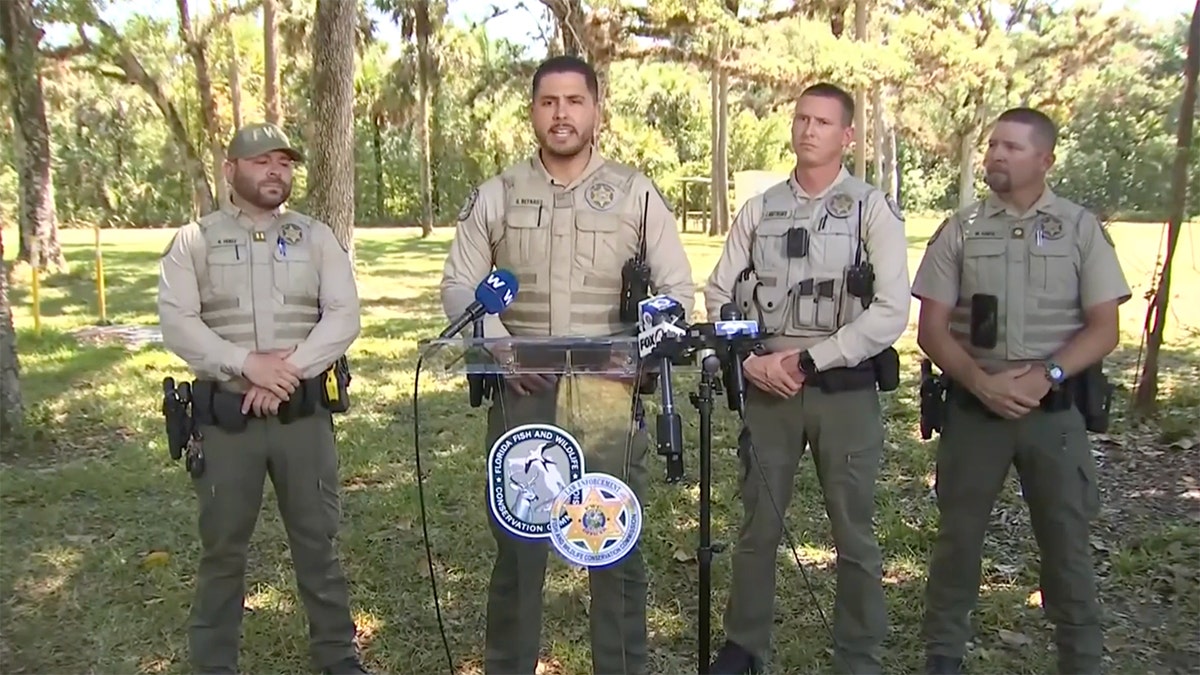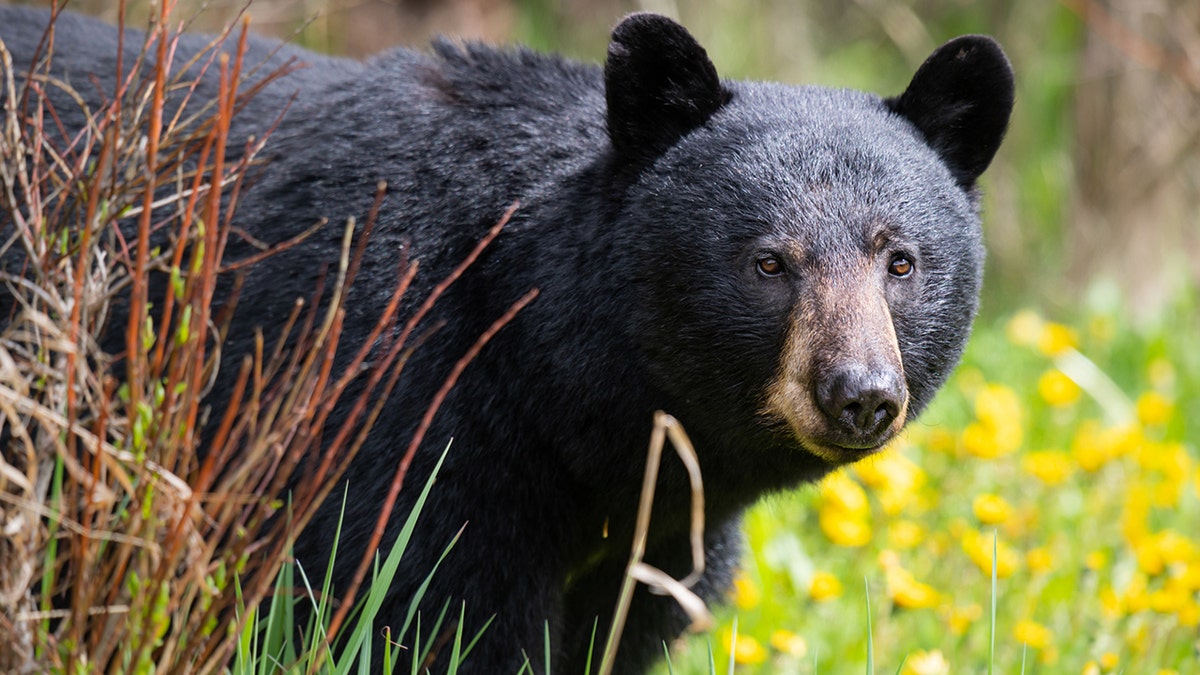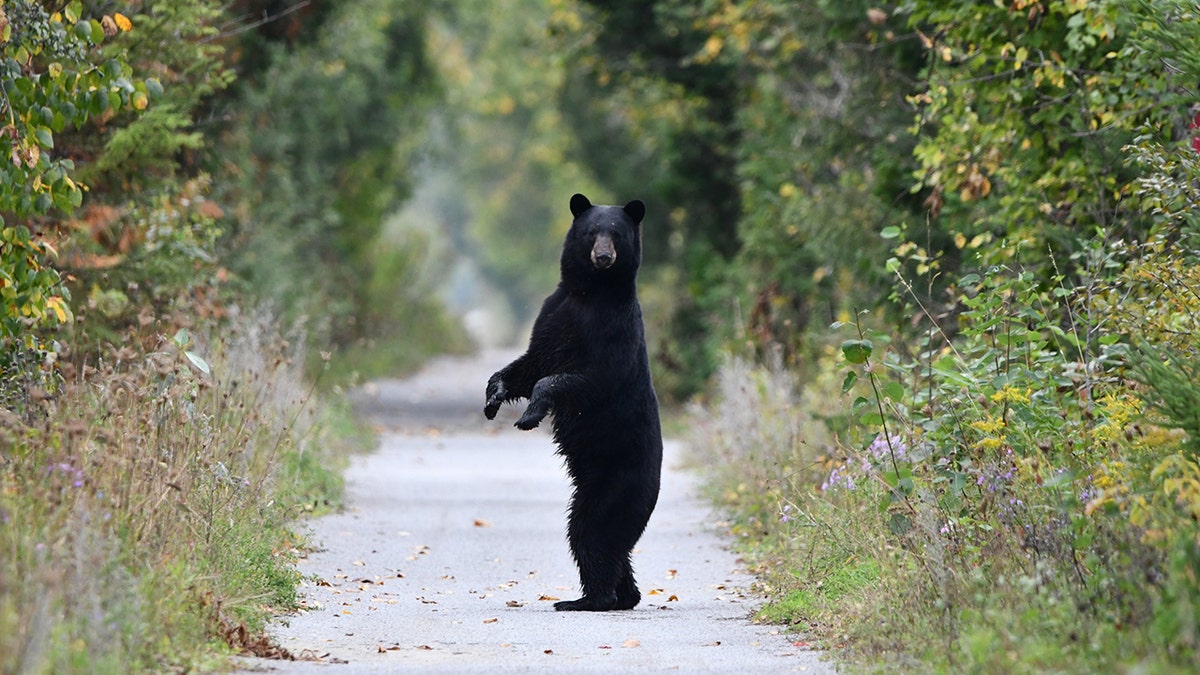Florida man, 89, and his dog mauled to death by black bear in state’s first fatal attack
The Florida Fish and Wildlife Conservation Commission (FWC) on Friday confirmed a man and his dog were mauled to death by a black bear in Jerome — markingthe first fatal black bear attack in state history.
Family members reported 89-year-old Robert Markel missing from his home and “signs of recent disturbances” that could have been caused by a bear or bears around the property.
The Collier County Sheriff’s Office (CCSO) notified FWC staff on Monday of a possible fatal wildlife encounter, and FWC law enforcement and bear management staff immediately responded to secure the area.

YOUNG KANGAROO HOPS AROUND FLORIDA TOWN AFTER BRAZEN ESCAPE, OWNER CHARGED
Markel’s remains were found about 100 yards from his home, along with evidence of a “physical encounter” between a bear and a person near the house, according to a news release from the FWC.
Officials also noted a dog was recently killed by a bear near a person, and there were signs that a bear had entered the home itself.
NIH CLOSES EXPERIMENTATION LABS ACCUSED OF BRUTALLY KILLING THOUSANDS OF BEAGLES FOR 40+ YEARS
While the exact sequence of events remains unclear, the FWC’s Human-Bear Conflict Response Policies and Guidelines outline how the agency should respond when faced with situations that require the removal of a bear for public safety.
From Monday night into early Tuesday morning, FWC personnel killed three adult male bears weighing 207, 263 and 434 pounds, according to the release.

There was an unsuccessful attempt to trap a fourth bear, but DNA evidence was collected, officials said.
The three carcasses were immediately taken to laboratories in Gainesville for necropsy and testing, along with DNA samples collected from physical evidence at the scene.
FWC officials said the Collier County Medical Examiner is still in the process of completing their investigation, but indicated Markel’s preliminary cause of death was “consistent with injuries caused by a black bear.”
WORLD’S TALLEST, SHORTEST DOGS MEET FOR PRECIOUS PLAYDATE CAUGHT ON CAMERA
Necropsy results revealed that one bear, the 263-pound male, contained partial remains of Markel.
DNA results received on Friday positively identified that the 263-pound male’s DNA was present on Markel, inside his home and on the dog’s body.

The only bear DNA found at the scene matched the three bears that were killed by authorities.
All three bears were tested for rabies, and all results were negative, according to officials.
FWC law enforcement and bear management staff stayed in contact with the family and maintained a presence near the property until Friday, spotting only one additional bear in the area.
Law enforcement and bear management staff will remain throughout the weekend.
PITTSBURGH FUNERAL DIRECTOR CHARGED WITH SWINDLING PET OWNERS, DUMPING PETS’ REMAINS IN LANDFILL
“We want to thank the family for their cooperation as they navigate this challenging time, and our thoughts remain with them,” said FWC Chairman Rodney Barreto. “I am proud of our staff’s professional response and support for the family as they faced an unfathomable event this week.”
Jerome is in the South Bear Management Unit, which has the third-largest population of bears in the state, estimated at 1,044 in 2015.

The FWC received 16 bear-related calls within a 10-mile radius of nearby Copeland between May 5, 2024, and May 4, 2025, resulting in five site visits, five capture efforts, three bears that were relocated and hazed, and one bear that was humanely killed, according to the FWC.
While it is rare for wild black bears to injure people in Florida, people have been bitten and scratched by bears, most often when there are cubs, food sources or dogs present.
CLICK HERE TO GET THE FOX NEWS APP
The FWC receives an average of 6,300 bear-related calls annually and has documented 42 prior incidents where wild black bears have made physical contact with people since the 1970s, when comprehensive records began being kept.
Of those, three resulted in serious injuries requiring medical attention prior to the most recent incident.
